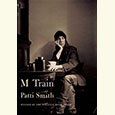Magic, Poverty, and Strength in the Mountains
With Prayers the Devil Answers Sharyn McCrumb offers another compelling Appalachian novel
Sharyn McCrumb has deep personal ties to the Southern Appalachians and clearly knows them well. In Prayers the Devil Answers, as in her many other historical novels, McCrumb doesn’t shy from integrating elements of violence and prejudice into the plot, though in the end a sensible strength of character emerges as the most important quality of the region’s people and culture.
 Ellie Robbins, the narrator of Prayers the Devil Answers, tells the story from her Depression-era early marriage—living with in-laws on a hardscrabble mountain farm—to life in a rented house in a small East Tennessee town with her husband and two young sons. She’s basically withdrawn, a listener rather than a talker: “When I really wanted company I read a book,” she says. But she has backbone, too, taking a gun with her to confront an abusive drunk in the neighborhood: “Everybody’s got a right to shoot mad dogs,” she tells him, “so look out I don’t take you for one.”
Ellie Robbins, the narrator of Prayers the Devil Answers, tells the story from her Depression-era early marriage—living with in-laws on a hardscrabble mountain farm—to life in a rented house in a small East Tennessee town with her husband and two young sons. She’s basically withdrawn, a listener rather than a talker: “When I really wanted company I read a book,” she says. But she has backbone, too, taking a gun with her to confront an abusive drunk in the neighborhood: “Everybody’s got a right to shoot mad dogs,” she tells him, “so look out I don’t take you for one.”
Ellie’s husband is more outgoing and builds relationships more easily. He applies for a job as a sheriff’s deputy and soon finds himself elected sheriff. Two months later, he’s dead of pneumonia. Life has never been easy for Ellie, but now she faces the challenges of basic survival. There is no safety net, and like many country people she’s too proud to accept charity.
The decision she makes—applying to fill out her husband’s term as sheriff—is the only feasible option, but first Ellie must overcome the townspeople’s doubt that a woman can actually do the job. She shows she can. Then a shy WPA-sponsored painter comes to town, marries a young school teacher, and pushes her off a cliff to her death. Why? He doesn’t know for sure, and his action shocks him. In any case, there’s a witness to the murder, a trial in Knoxville, and a death sentence, which Ellie is obliged to execute by way of a public hanging.
The community is united on this point: a woman sheriff can’t—or at any rate shouldn’t—pull the latch to the gallows trapdoor, but Ellie is determined to do her job. She’s the type who gets “on with the things that need to be done.” Methodically, she goes about preparing for the hanging, fending off reporters from all over, having a scaffold and coffin built, arranging for the burial, and recruiting a clergyman and a doctor to assist. She personally counsels the condemned man and engages him to draw a portrait of her two boys. And somewhere along the way she learns that her own husband was not entirely the man she thought he was.
The narrative of Prayers the Devil Answers is well paced, with plenty of unhurried emotional involvement, but the way McCrumb embeds it in the people and culture of the time and place is what sets this book apart and lends it authenticity. Hobos; the poverty of nearly everybody but the railroad bosses; the persistence of traditional rituals like the “dumb supper,” where nubile country girls try to identify and snag husbands through magic; the state prohibition against married schoolteachers; painting techniques and post-office mural commissions; and innumerable other details allow McCrumb to recreate a time, place, culture, and people while she tells a good story.

Ralph Bowden, who holds a Ph.D. from the University of North Carolina, has worked as an electrical engineer, history professor, home builder, alternative-energy consultant, and technical writer. A former resident of both Knoxville and Chattanooga, he lives in Cookeville.


